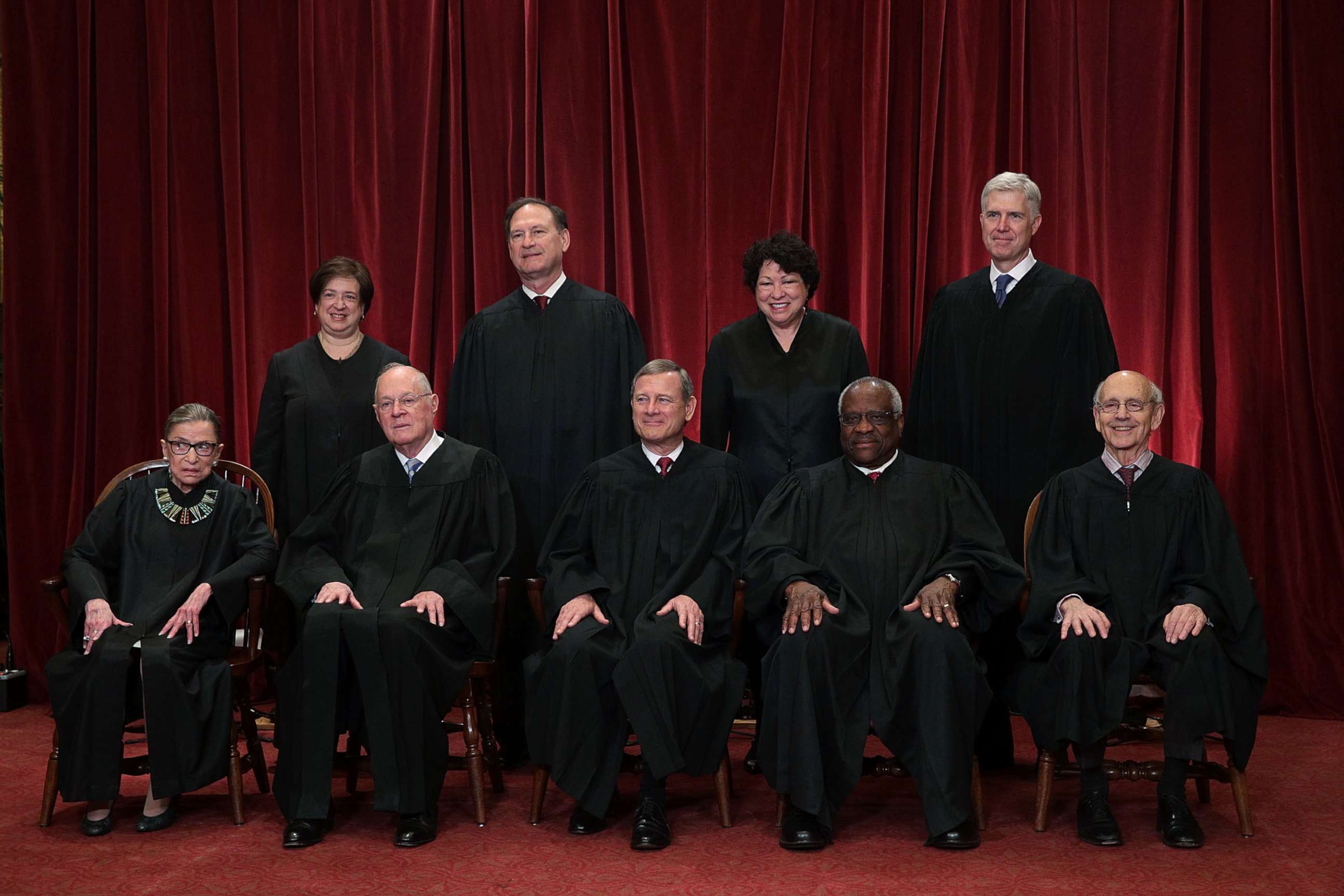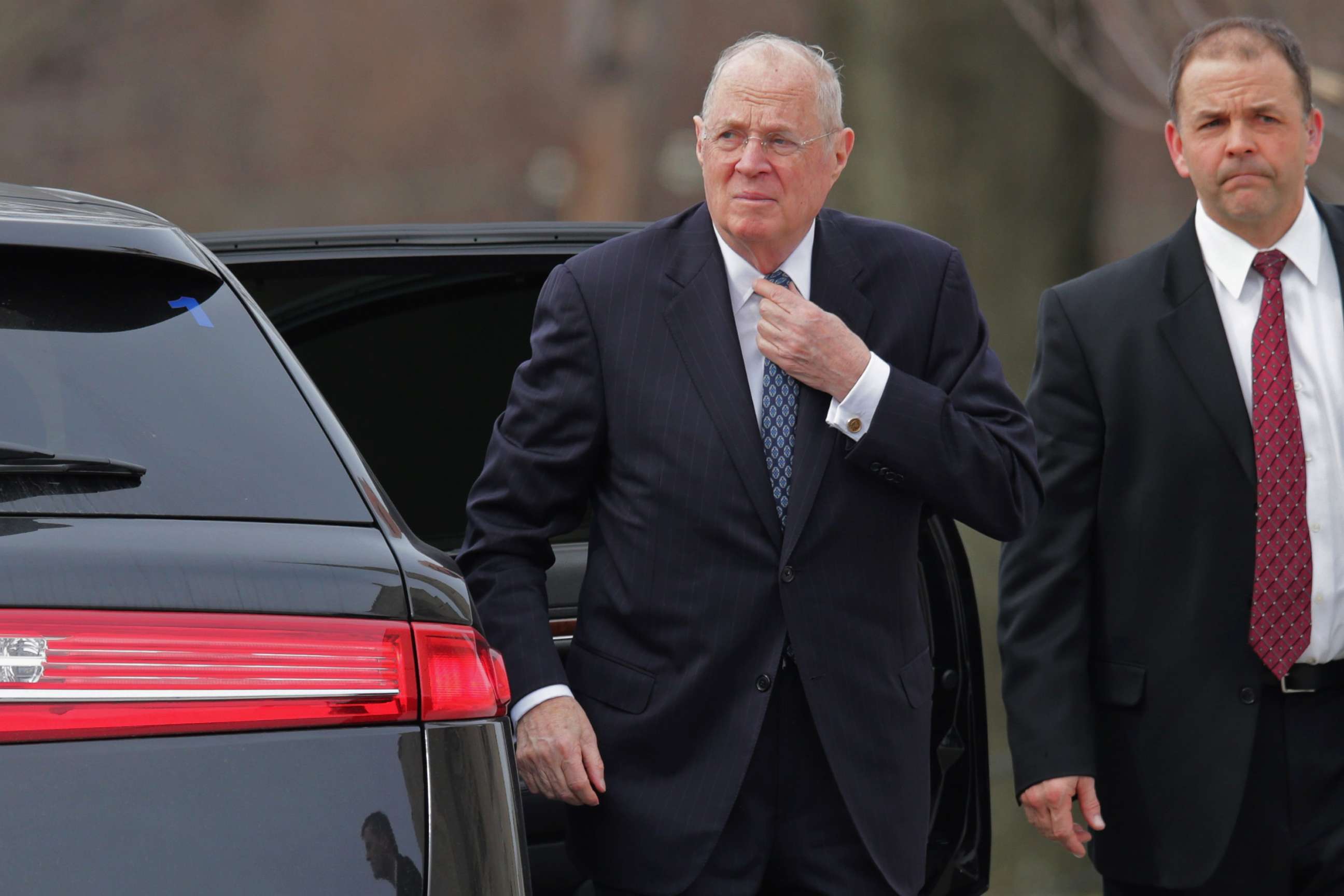What Kennedy's retirement could mean for the Supreme Court: ANALYSIS
ABC Supreme Court contributor Kate Shaw weighs in on Kennedy's retirement.
The announcement of Supreme Court Justice Anthony Kennedy's retirement set off immediate reactions from both sides of the aisle on the impact of the upcoming debate to replace a justice who has traditionally been the swing vote on the bench.
ABC News Supreme Court contributor and Cardozo law professor Kate Shaw weighed in on what Kennedy's retirement could mean for the future of the Court.
How is this likely to impact the ideological makeup of the court?
There’s no question that this is a massive development. Senate Majority Leader Mitch McConnell successfully prevented President Obama from cementing the Court’s liberal majority when he refused to hold a hearing and then vote on Judge Merrick Garland, President Barack Obama’s nominee to fill the vacancy left by the death of Justice Antonin Scalia in 2016. But the confirmation of Neil Gorsuch to fill Scalia's seat only restored the Court to its 4-1-4 balance.

Kennedy's retirement could have a profound effect on the law, replacing the Court’s swing Justice — who in recent years was a reliable vote with the liberals on a number of social issues — with a solid conservative.
How might abortion law be impacted?
One major area in which we could see a transformational effect on the law is abortion. Justice Kennedy had a complicated relationship to abortion. He surprised Court-watchers in 1992, in a case that many people thought spelled the end for Roe v. Wade. In that case, he joined with fellow Republican Justices Sandra Day O’Connor and David Souter to reaffirm Roe’s core holding.
But then in 2007, Kennedy joined the conservatives in upholding a federal law prohibiting so-called “partial-birth abortion.” Then in 2016 he joined the liberals in a strong opinion striking down a restrictive Texas abortion law and again reaffirming Roe.
So his most recent vote has been in favor of robust constitutional protections for abortion. A more conservative nominee — certainly one like Judge William Pryor from Alabama, but really virtually everyone on the lists we’ve seen — would likely vote to overturn or at least dramatically narrow Roe in the right case. So a lot of attention would shift to Chief Justice John Roberts, who’s been a reliable vote against abortion but who also might worry about what a decision overturning Roe might do to the Court’s standing and legitimacy.

And how might gay rights law be impacted?
Gay rights are another area in which Justice Kennedy leaves a massive legacy. He’s the author of four hugely important cases on gay rights – beginning in 1996, moving onto a landmark 2003 decision striking down state statutes that criminalized sex between adults of the same sex and culminating in the 2015 decision declaring marriage equality the law of the land.
I don’t think this area is as vulnerable as abortion — a new majority could act to protect the rights of religious objectors to, say, participate in same-sex marriages, but I don’t think there’s much chance of these opinions being overturned outright. But it’s certainly not impossible.
What about cases dealing with the death penalty?
The death penalty is another area in which Justice Kennedy sometimes voted against traditionally conservative positions. He authored the opinion finding that the death penalty couldn’t be imposed on individuals who committed their crimes as juveniles; he also wrote the opinion finding that the death penalty couldn’t be imposed for non-homicide crimes, like the rape of a child. And he has expressed real doubts about the constitutionality of prolonged solitary confinement.
A more conservative Justice might be less inclined to favor these sorts of limitations.




